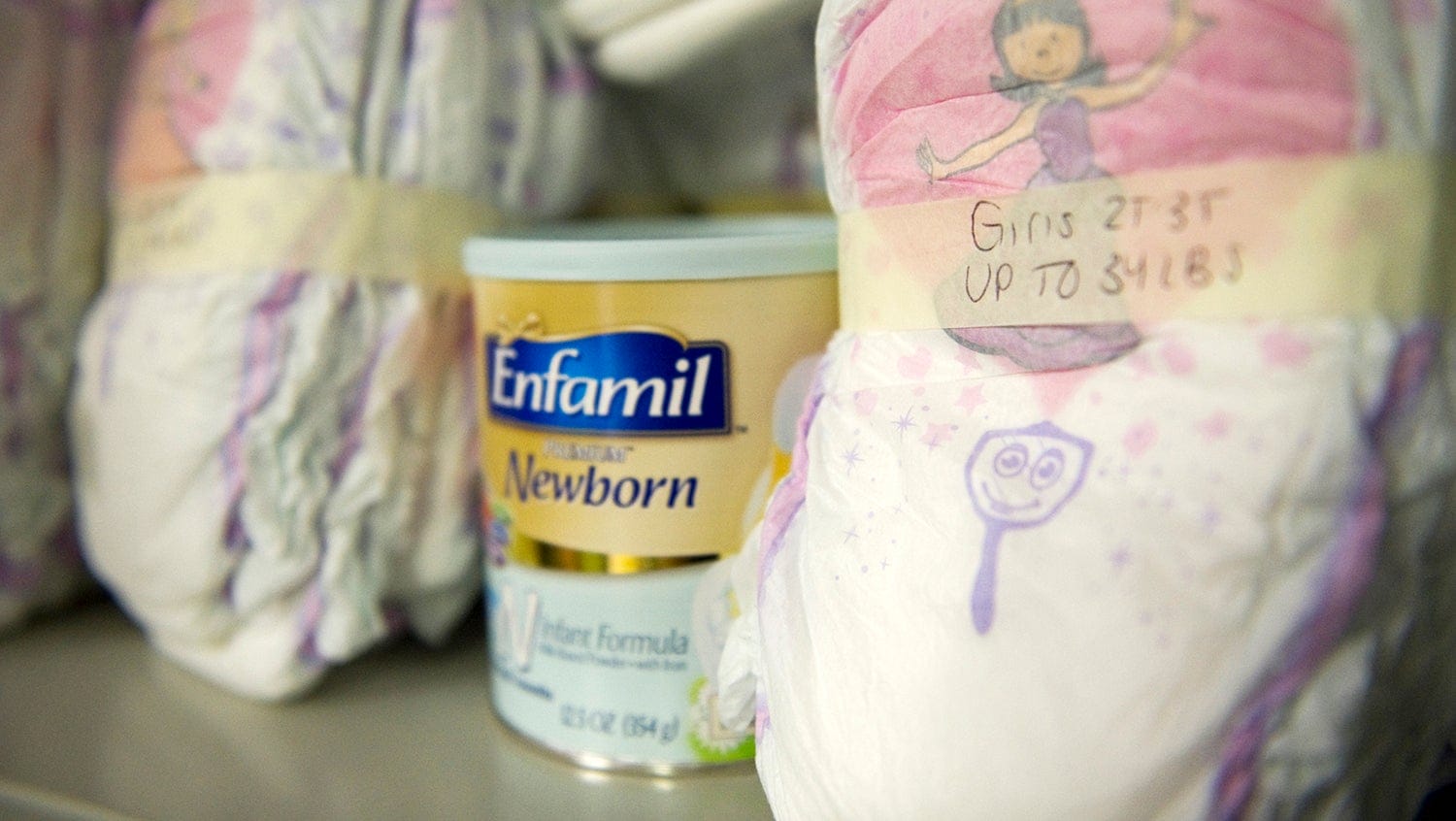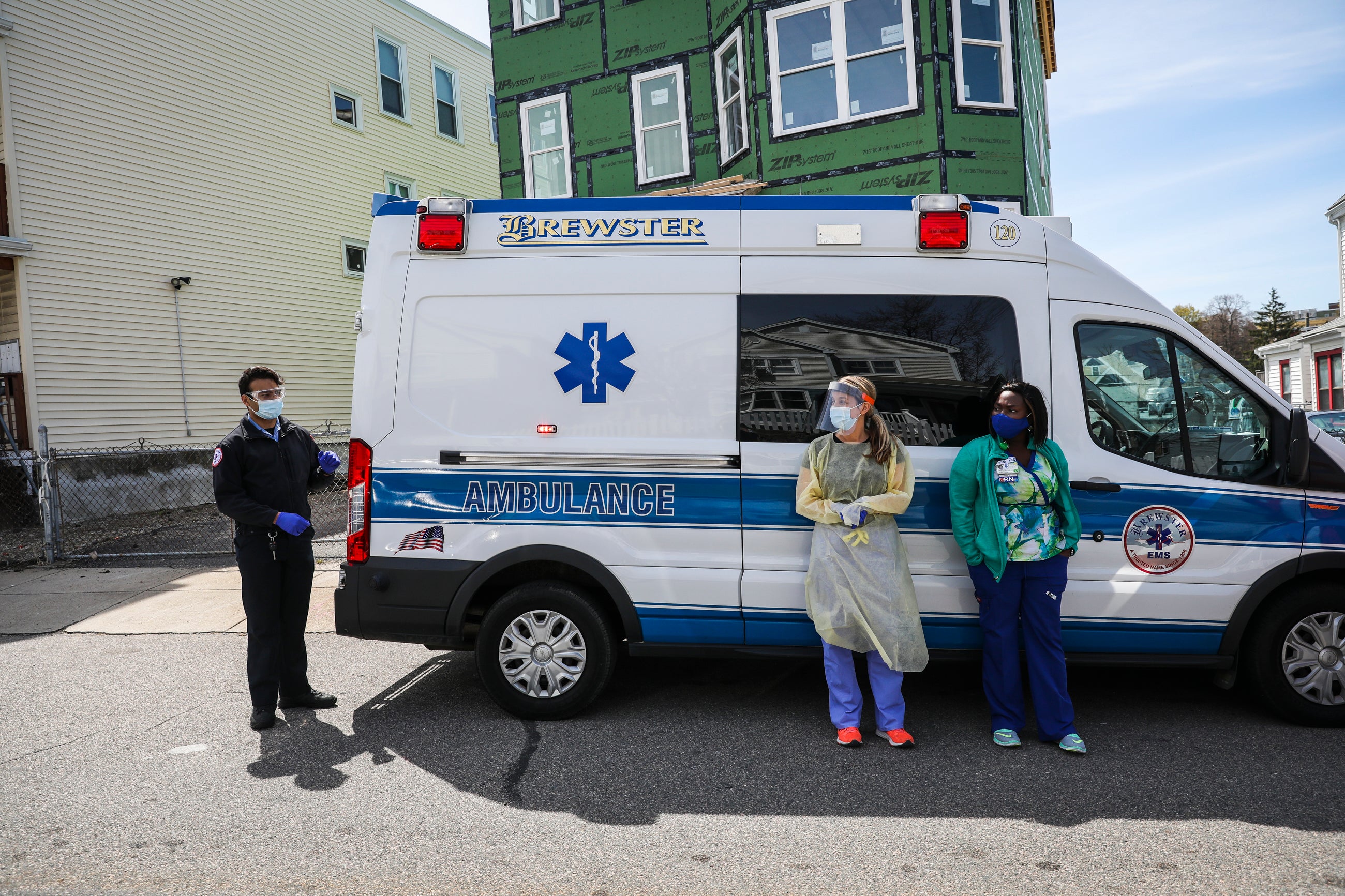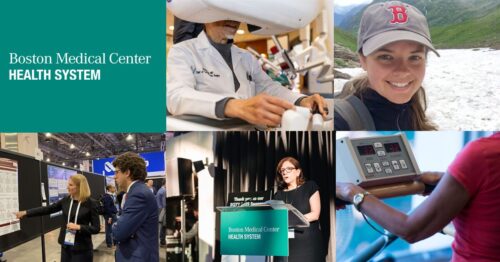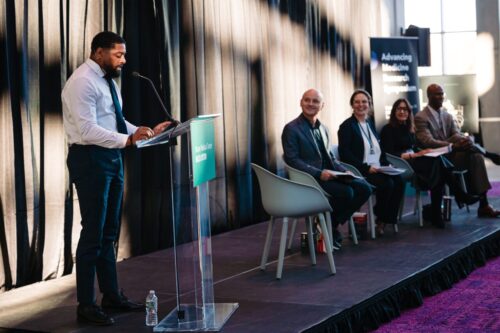Deliveries From the Doctor? From Medical Care to Diapers and Groceries, Pediatricians Meet Holistic Needs in a Time of Crisis
July 24, 2020
By Meryl Bailey

Getty Images
Wraparound services at the hospital are not new. Getting them to children and families in a pandemic is.
Going the extra mile is nothing new for providers in the department of pediatrics at Boston Medical Center (BMC), as they’ll tell you, but Caroline Kistin, MD estimates the team has traveled hundreds of miles traversing Boston neighborhoods to patients’ homes since March.
The extraordinary distance is part of a massive effort on behalf of the hospital to deliver medical care and supplies to families in crisis during the ongoing COVID-19 pandemic.
While COVID-19 cases surged in BMC’s emergency department and intensive care units from March through May, in-person pediatric visits dropped by 70%. Doctors shifted to telehealth to try to meet the needs of their more than 14,000 pediatric patients, but were unable to provide essential vaccinations and other critical follow-up care to families who were fearful of coming to the hospital. With job losses quickly mounting, children home from school, and barren shelves at the grocery stores, doctors worried their vulnerable families were more at-risk than ever.
The pediatric team forged an ambitious initiative called Project REACH to contact and assess the well-being of all pediatric families. Kistin and colleagues Sara Stulac, MD and Ivys Fernandez-Pastrana, JD led the project, enlisting an army of outreach volunteers that included pediatric faculty and staff, patient navigators, and medical students.
“By providing additional resources and workforce, Project REACH expands on the hospital’s existing patient navigation model,” explains Fernandez-Pastrana, who co-developed the patient navigation model at the hospital and manages a team of eight full-time patient navigators. “A call to one family can last up to one hour, where we assess a family’s needs without rushing or interruption. We believe providing the family time to talk equals good patient care.”
With strong partnerships and dozens of unique programs, BMC leads the nation in innovative approaches that address social determinants of health. The challenge, however, was bringing these resources directly to families’ homes during the pandemic. Brewster Ambulance Service generously stepped forward with a solution, donating an ambulance to the team for house calls. Keeping young children up to date on their vaccinations during the state shutdown was a top priority. Project REACH planned to couple these essential home visits with deliveries of food, hygiene items, cleaning supplies, and other supports.
Related read: How a Pediatric Vaccination Van Has Upended the Idea of Care »
Food as medicine
An ambulance secured, the team began placing outreach calls to families with children in need of vaccinations to schedule home visits as well as calling to assess the needs of families in area neighborhoods hardest hit by the COVID-19 pandemic: Chelsea, Dorchester, Mattapan, and Roxbury. Although they had anticipated additional hardship, the depth of need surprised outreach workers. Many families reported not having enough food for even two days’ worth of meals. And 15% of the assessed families were unable to leave their house at all due to positive COVID-19 diagnoses, childcare needs, or risk to vulnerable family members. Families were in dire need of food and supplies to maintain their health.
Many families reported not having enough food for even two days’ worth of meals
“Throughout the state and the nation, food insecurity is increasing — it’s affecting more families, and it’s more severe,” says Kistin. “To talk with families and recognize their stress of not knowing what they are going to feed their families for the rest of the week, during an already stressful time, is really gut-wrenching.”

Project REACH embraced several strategies to procure and deliver food and supplies to patients, including sourcing groceries from the hospital’s food pantry, providing grocery store gift cards, and having boxes of food delivered from the Boston-based nonprofit, About Fresh. The team also procured diapers, formula, baby items, and cleaning supplies for those in need. Physicians distribute these packages during mobile unit visits, or medical student volunteers deliver them individually to homes.
Reversing the impact of stress: Virtual therapy and support
Insecurities in food, finances, and housing compound the stress on families already stretched thin during the public health emergency. A recent survey by Johns Hopkins Bloomberg School of Public Health reported that the incidence of psychological distress in adults in low-income households more than doubled in April 2020, reaching 19.3%.
Realizing the impact of mounting stress within households, the team has made mental health outreach for struggling parents and children has been a large part of their initiative. The tiered approach involves evaluation and virtual therapy for those in need. In addition, to help reduce isolation and promote child enrichment, Project REACH offers weekly virtual support groups and classes through the Zoom platform. Support groups include stress management and financial education for parents and music classes and story times for children.
The economic aftermath and a long-term need for services
All of Project REACH’s efforts are sustained solely on donations from the hospital’s COVID-19 relief fund and in-kind contributions from the hospital’s Amazon wish list. Thanks to the overwhelming support of donors and community partners, pediatricians are empowered to provide their patients with tangible help in a time of great need.
“We see patients every day whose lives and health are being influenced by forces beyond what we can impact as clinicians,” says Stulac. “We can give out a list of resources for childcare and housing, but it always feels inadequate. But being able to say, okay, the heaviest thing on your mind is what you are going to be able to eat tonight — we can actually do something about that now.”
As COVID-19 cases decrease in the Boston area and the state reopens, it is clear the hardship endured by families will be severe and long-lasting. Many families live in multigenerational households and fear exposing their vulnerable loved ones to the coronavirus. Economic hardship will also persist and even worsen as city and state rent relief initiatives end and evictions rise, experts worry. Fernandez-Pastrana notes the pandemic has created a new landscape in state and federal aid that the patient navigation team is learning to map.
“For instance, some people receiving unemployment benefits are now rendered ineligible for federal food assistance. We are working to provide answers to panicked families and find resources to bridge gaps,” says Fernandez-Pastrana.
It is clear people will continue to have acute, immediate needs, and Project REACH hopes to evolve to support those struggling.
“The pandemic has exacerbated the disparities for families already experiencing structural racism, language barriers, and other significant challenges. Decreasing rates of infections are not going to change the economic stress that’s affecting our families,” cautions Kistin.


